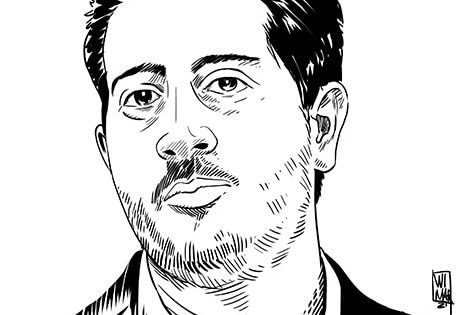(RSF/IFEX) – On the occasion of Jimmy Carter’s visit to Cuba, from 12 to 17 May 2002, RSF drew the former United States president’s attention to the press freedom situation in Cuba. In a letter to Carter, the organisation expressed concern over the cases of four currently imprisoned journalists and asked him to intercede in […]
(RSF/IFEX) – On the occasion of Jimmy Carter’s visit to Cuba, from 12 to 17 May 2002, RSF drew the former United States president’s attention to the press freedom situation in Cuba. In a letter to Carter, the organisation expressed concern over the cases of four currently imprisoned journalists and asked him to intercede in favour of Bernardo Arévalo Padron, Carlos Alberto Domínguez, Carlos Brizuela Yera and Lester Téllez Castro during his talks with the Cuban authorities. “Cuba is the only Latin American country where journalists are systematically sent to jail,” emphasised RSF Secretary-General Robert Ménard.
RSF also asked Carter to step in to promote the end of the state monopoly on information and the legalisation of independent news agencies. The organisation recalled that, “in Cuba, where the constitution sets forth that ‘freedom of expression and of the press is subject to the goals of the socialist society’, only the official press is authorised.”
Arévalo Padron, founder of the independent news agency Linea Sur Press, was sentenced to six years’ imprisonment in November 1997 for “insulting” President Fidel Castro and Vice-President Carlos Lage. In April 1998, he was beaten up by two officers in Ariza prison. Since March 1999 he has been frequently transferred to various labour camps in Cienfuegos province, where he has been assigned to weeding and cutting sugar cane. He is now jailed at the “Destacamento 16” camp, which is under the Ariza jail’s management, where he is exempted from forced labour because of his poor health. The prison authorities recently rejected his application for release on parole, to which he has been entitled since October 2000, after having served half his sentence. The authorities say he is not yet “politically re-educated.”
Domínguez of the independent news agency Cuba Verdad was arrested by four state security officials on 23 February. He was first jailed in Havana at a centre run by the Technical Investigations Department (DTI), which is part of the Interior Ministry and is notorious for the ill-treatment of prisoners. The journalist suffers from migraine and high blood pressure. His health has deteriorated sharply. On 29 March, he was transferred to Valle Grande Prison (in Havana). He has reportedly been charged with “disturbing public order” and “refusing to obey instructions.” He is also said to have been accused of helping to organise demonstrations on 24 February marking the death of four pilots of the Cuban exile group Brothers to the Rescue who were shot down by Cuban air force planes on 24 February 1996. Recently, the authorities refused to let him see his lawyer and limited visits from his family. Domínguez is also head of the Law Institute and a member of the November 30 Democratic Party, two organisations not recognised by the state. He has been arrested many times because of his organisational affiliations.
Téllez Castro, who heads the Agencia de Prensa Libre Avileña (APLA), and Brizuela Yera, who works for the Colegio de Periodístas Independientes de Camaguey, were beaten by police on 4 March and then detained with eight human rights activists. They were arrested on their way to visit Jesús Alvarez Castillo, a correspondent from the Cuba Press agency in Ciego de Avila (central Cuba) who had been hospitalised after being beaten up the same day by police. On 11 March, Téllez Castro was transferred to a prison in Cienfuegos and Brizuela Yera was taken to a detention centre in the eastern province of Holguín. Téllez Castro was transferred again, on 19 April, to Canaleta prison, in Ciego de Avila. Both journalists have complained about bad prison conditions. They are expected to be charged with “insulting behaviour”, “causing trouble in a medical facility” and “refusing to obey instructions”. The eight human rights activists arrested with them were also taken to detention centres.
RSF also recalled the lack of progress towards press freedom in Cuba. Despite the release of two journalists in 2001, the situation has in fact gotten much worse. Only government-controlled media outlets are permitted. About 100 independent journalists, grouped into about 20 news agencies that are not recognised by the government, are constantly harassed. About 30 journalists were arrested last year and nearly 100 incidents of harassment were recorded. As part of a campaign against “ideological deviation”, new action was taken to protect the state monopoly on information, notably the removal from private residences’ roofs of satellite dishes able to pick up foreign television stations. Reception of foreign radio stations was also jammed. Since the beginning of the year, the sale of computers to private individuals has been banned. Access to the Internet is also still strictly controlled.
President Castro is included on RSF’s list of international press freedom predators.


